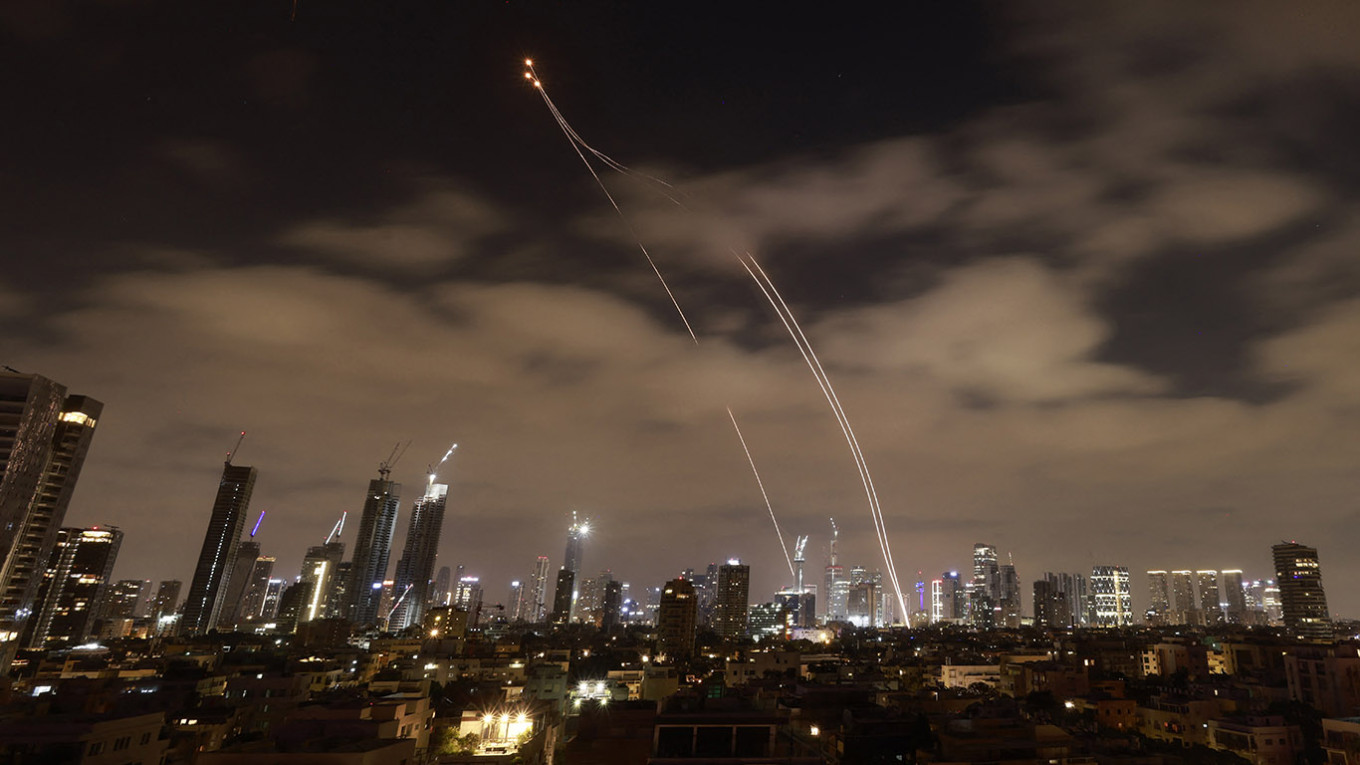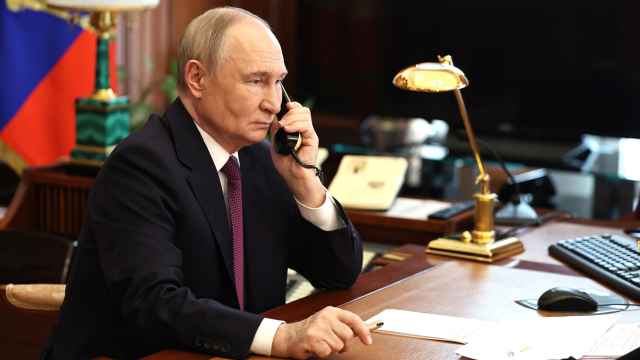From the very beginning of the unprecedented military escalation between Iran and Israel, Russia has expressed its concern about the conflict, in which, until now, hundreds of people have been killed on both sides.
Although the Russian Foreign Ministry has "strongly condemned" Israel’s June 13 strikes on Iran, describing these as a “clear violation of the UN Charter as well as established principles of international law,” Moscow has pretensions of being a mediator between the two conflicting sides.
Russia’s President Vladimir Putin had two phone calls that same day — both with the Israeli Prime Minister Benjamin Netanyahu and Iranian President Masoud Pezeshkian. He is one of a small number of political leaders in a position to hold talks simultaneously with Tehran and Tel Aviv.
The new unfolding conflict in the Middle East was also discussed by Putin and his United States counterpart Donald Trump on June 14. Among other things, Putin emphasized the "readiness of the Russian side to engage in possible mediation efforts."
The American president, in turn, told ABC News he would be "open" to Putin's idea to serve as a mediator between Iran and Israel.
But does the Russian leader have a real chance to help achieve a ceasefire in the Middle East? The more important question is whether Putin is actually interested in stopping the bloodshed in the region.
For many years, Putin’s Russia could brag about its close relations with the key actors in the Middle East, including those who are at loggerheads with each other.
This balancing gave Moscow a chance to strengthen its presence in the region, including a military one. One of the brightest examples in this regard was Syria, wherein Russia had a close cooperation with Iran, Turkey and, to a certain extent, Israel — especially via intelligence services.
However, with the start of the full-scale invasion of Ukraine in February 2022, other issues began to fade into the background for the Kremlin, including the situation in the Middle East.
The reduction of political, diplomatic and military resources in the region led to a weakening of the Russian presence and the inability to influence processes seriously.
The rapid collapse of the Bashar al-Assad regime in Syria at the end of 2024 made it clear that the Kremlin no longer has the ability to support allies in the region, as it did 10 years ago. Assad's fall was also a personal blow to Putin, whose apparent weakness gave his regional partners an additional reason not to trust him.
Furthermore, over the past three years, Moscow's balancing policy in the Middle East has been shaken. The Kremlin's active military cooperation with Iran, as well as support for Tehran's proxies in the region — starting with the Houthis, Hamas and Hezbollah — has spoiled the Russian-Israeli partnership amid the escalating conflict over the Gaza Strip.
Relations have also been strained by inaccurate statements by several officials, starting with Foreign Minister Lavrov, who in May 2022 said that the Jews themselves were responsible for the Holocaust.
At the same time, Iran also has reasons to distrust Moscow. Thus, during its presence in Syria, Tehran suspected the Kremlin of close cooperation with Israel. For example, after the attack on the Iranian consulate general in Damascus on April 1, 2024, in which several high-ranking generals were killed, Tehran, among other things, looked for evidence of Russian involvement.
Diplomatic conflicts also arise periodically between Russia and Iran. In 2023, the heads of Russia’s diplomatic mission in Tehran were twice summoned to the Islamic Republic’s Foreign Ministry because of Moscow's pro-Emirati position on three islands in the Strait of Hormuz, which are controlled by Iran. But the United Arab Emirates (UAE) — a more profitable economic partner for the Kremlin — disputes ownership of the chain. Thus, neither Iran nor Tel Aviv currently counts on Moscow as a reliable partner.
The current escalation in the Middle East is certainly beneficial to the Kremlin. It distracts the attention of the United States and Europe from the war in Ukraine, giving Putin the opportunity to continue.
In the event of Washington's military participation in the conflict, this will also require the involvement of resources, including weapons for the Jewish State. When choosing between Israel and Ukraine, Trump will obviously give priority to the first one.
At the same time, the war in the Middle East also means an increase in oil prices, to which the Russian budget is strongly tied.
However, Moscow, still wanting to maintain a presence in the region, is not interested in an uncontrolled conflict with catastrophic consequences for all actors.
Moreover, the Kremlin fears, if not a collapse, then at least a weakening of the regime in Tehran. This would jeopardize large-scale joint projects, such as the North-South transport corridor, the Russian-Iranian gas hub and the construction of new reactors for the Bushehr nuclear power plant.
At the same time, the current escalation involving the Islamic Republic will lead to a reduction in military cooperation between the two countries. This has the potential to disrupt the supply of Iranian drones, ballistic missiles and other weapons and military equipment to Russia.
The fall of the theocratic regime in Iran will turn out to be another geopolitical defeat for the Kremlin in the Middle East after the overthrow of the Assad regime at the end of last year, on which Moscow relied in the region for more than 50 years.
As a result, Russia is interested in a slowly simmering conflict in the Middle East, but not in a large-scale war, as if invoking the Koranic principle "Fight … but do not transgress."
An attempt to act as a mediator could strengthen the Kremlin's position as a major international player and an active participant in the Middle East agenda.
However, in addition to the mistrust of Moscow, potential negotiations between Iran and Israel do not seem possible on a more fundamental level. Given the current level of hatred, any potential deal with the enemy will be seen as a sign of weakness in both Tehran and Tel Aviv.
The most decisive factor in achieving peace in the Middle East will be the will of Trump, who currently has two options: to intervene in the military conflict on the side of Israel or to make a deal with Iran.
In both cases, it will be a question of forcing Tehran to abandon its nuclear ambitions.
If Trump chooses a diplomatic solution, Oman — which has organized five previous rounds of U.S.-Iranian negotiations — will most likely act as a mediator between the U.S. and Iran.
One way or another, this fierce conflict will be resolved without Russia's participation.
A Message from The Moscow Times:
Dear readers,
We are facing unprecedented challenges. Russia's Prosecutor General's Office has designated The Moscow Times as an "undesirable" organization, criminalizing our work and putting our staff at risk of prosecution. This follows our earlier unjust labeling as a "foreign agent."
These actions are direct attempts to silence independent journalism in Russia. The authorities claim our work "discredits the decisions of the Russian leadership." We see things differently: we strive to provide accurate, unbiased reporting on Russia.
We, the journalists of The Moscow Times, refuse to be silenced. But to continue our work, we need your help.
Your support, no matter how small, makes a world of difference. If you can, please support us monthly starting from just $2. It's quick to set up, and every contribution makes a significant impact.
By supporting The Moscow Times, you're defending open, independent journalism in the face of repression. Thank you for standing with us.
Remind me later.






